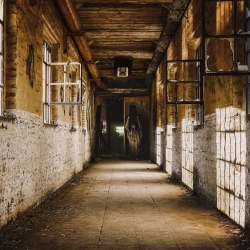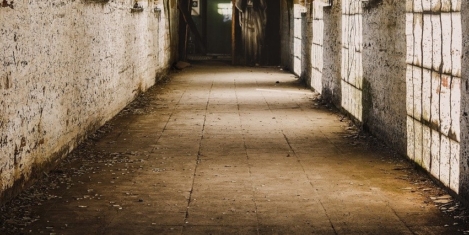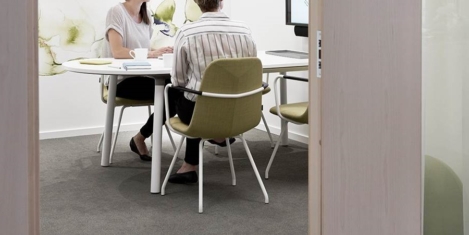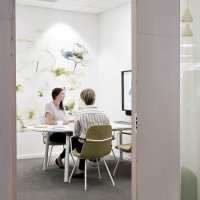To provide the best experiences, we use technologies like cookies to store and/or access device information. Consenting to these technologies will allow us to process data such as browsing behaviour or unique IDs on this site. Not consenting or withdrawing consent, may adversely affect certain features and functions.
The technical storage or access is strictly necessary for the legitimate purpose of enabling the use of a specific service explicitly requested by the subscriber or user, or for the sole purpose of carrying out the transmission of a communication over an electronic communications network.
The technical storage or access is necessary for the legitimate purpose of storing preferences that are not requested by the subscriber or user.
The technical storage or access that is used exclusively for statistical purposes.
The technical storage or access that is used exclusively for anonymous statistical purposes. Without a subpoena, voluntary compliance on the part of your Internet Service Provider, or additional records from a third party, information stored or retrieved for this purpose alone cannot usually be used to identify you.
The technical storage or access is required to create user profiles to send advertising, or to track the user on a website or across several websites for similar marketing purposes.
 More than three quarters (76 percent) of British job seekers admit to ghosting an employer or prospective employer in the past 18 months, despite over half (59 percent) having been ghosted themselves, according to new research from people analytics company, Visier. The study asked 1,000 UK employees who have been job hunting in the past 18 months about their experiences with ghosting, using Psychology Today’s definition of the term as ‘abruptly ending communication with someone without explanation’ in association with the workplace from recruitment through to starting a new role. (more…)
More than three quarters (76 percent) of British job seekers admit to ghosting an employer or prospective employer in the past 18 months, despite over half (59 percent) having been ghosted themselves, according to new research from people analytics company, Visier. The study asked 1,000 UK employees who have been job hunting in the past 18 months about their experiences with ghosting, using Psychology Today’s definition of the term as ‘abruptly ending communication with someone without explanation’ in association with the workplace from recruitment through to starting a new role. (more…)












 Around two thirds of professionals say they are ‘highly likely’ to leave their job this year due to a lack of face time with leaders within their organisation. Following the announcement yesterday from Government that working-from-home restrictions will be dropped, an annual employee survey from recruiter
Around two thirds of professionals say they are ‘highly likely’ to leave their job this year due to a lack of face time with leaders within their organisation. Following the announcement yesterday from Government that working-from-home restrictions will be dropped, an annual employee survey from recruiter 
 Just as businesses are starting to find their groove with
Just as businesses are starting to find their groove with 
 A new
A new 
 Microsoft’s new
Microsoft’s new 
 The last 18 months have seen unprecedented change. Covid-19 has forced people to re-evaluate every aspect of their lives, including their career. As a result, we’ve seen a surge in workers taking charge of their careers and leaving their jobs as part of the so-called Great Resignation. Recent data from the
The last 18 months have seen unprecedented change. Covid-19 has forced people to re-evaluate every aspect of their lives, including their career. As a result, we’ve seen a surge in workers taking charge of their careers and leaving their jobs as part of the so-called Great Resignation. Recent data from the 
 Decades of declining change in the UK labour market has reduced the risk of damaging job losses, but also limited opportunities for pay-enhancing job moves, according to
Decades of declining change in the UK labour market has reduced the risk of damaging job losses, but also limited opportunities for pay-enhancing job moves, according to 
 The events of the last 18 months have given us a once in a generation opportunity to reinvent work. Our generation can create a discontinuity between the assumptions of the past and the opportunities of the future. To capitalise on these opportunities though we have to dispense with the assumptions we hold about work and the places where work takes place, including many of the assumptions we hold about hybrid working. We have to re-examine the purpose of the office and what form it might conceivably take in the future before we can decide if it has any place in our plans.
The events of the last 18 months have given us a once in a generation opportunity to reinvent work. Our generation can create a discontinuity between the assumptions of the past and the opportunities of the future. To capitalise on these opportunities though we have to dispense with the assumptions we hold about work and the places where work takes place, including many of the assumptions we hold about hybrid working. We have to re-examine the purpose of the office and what form it might conceivably take in the future before we can decide if it has any place in our plans. 








January 17, 2022
Is your office worth the journey it takes to get to it?
by Despina Katsikakis • Comment, Flexible working, Property